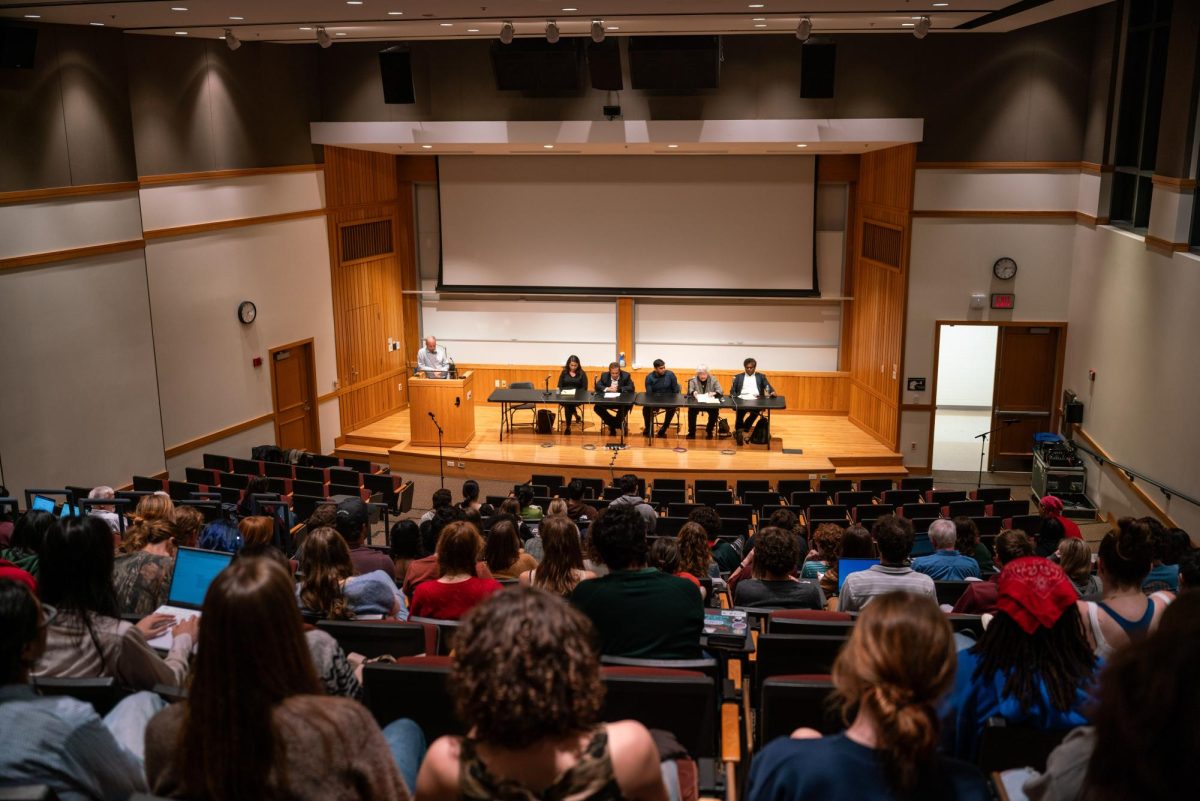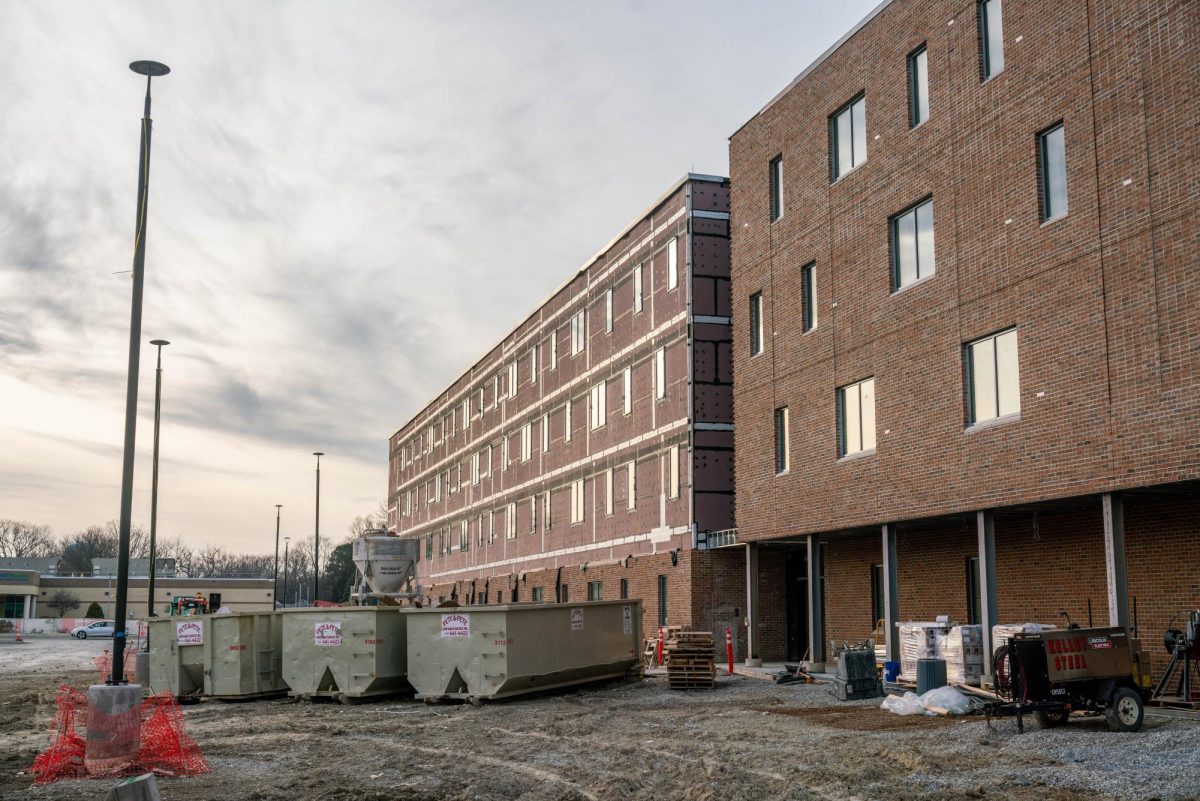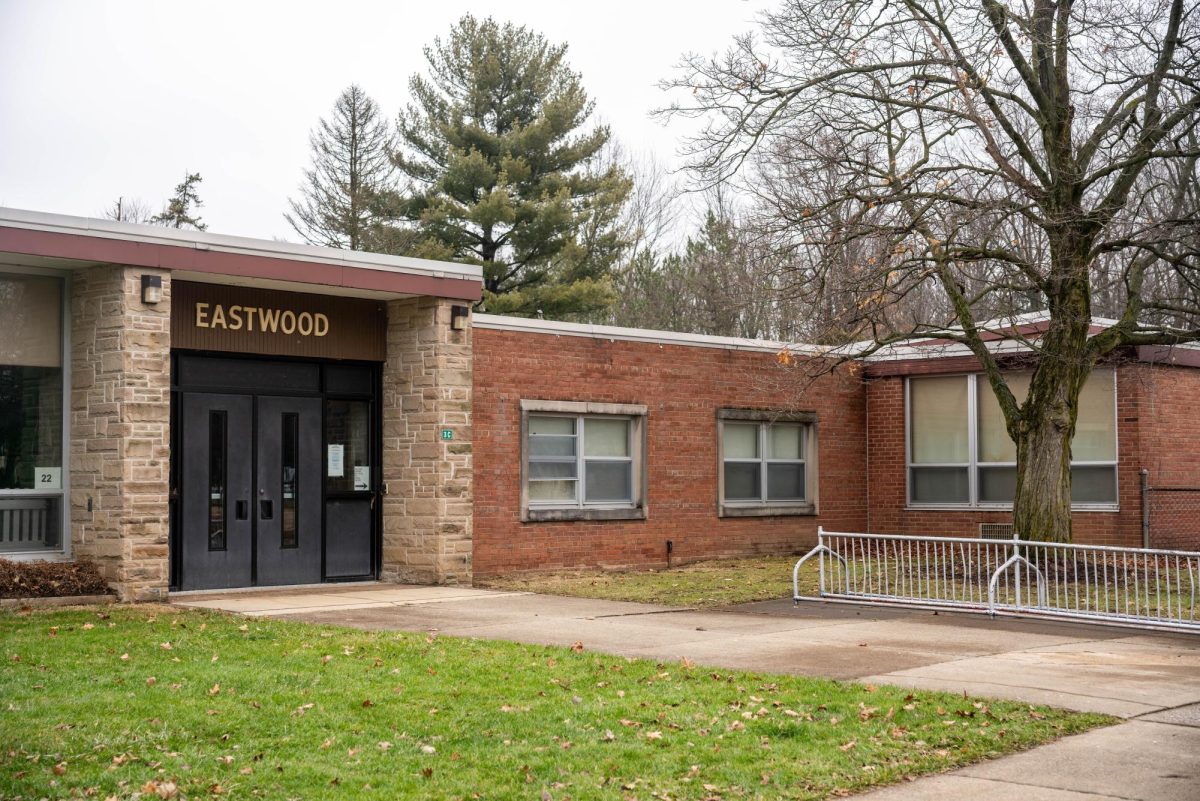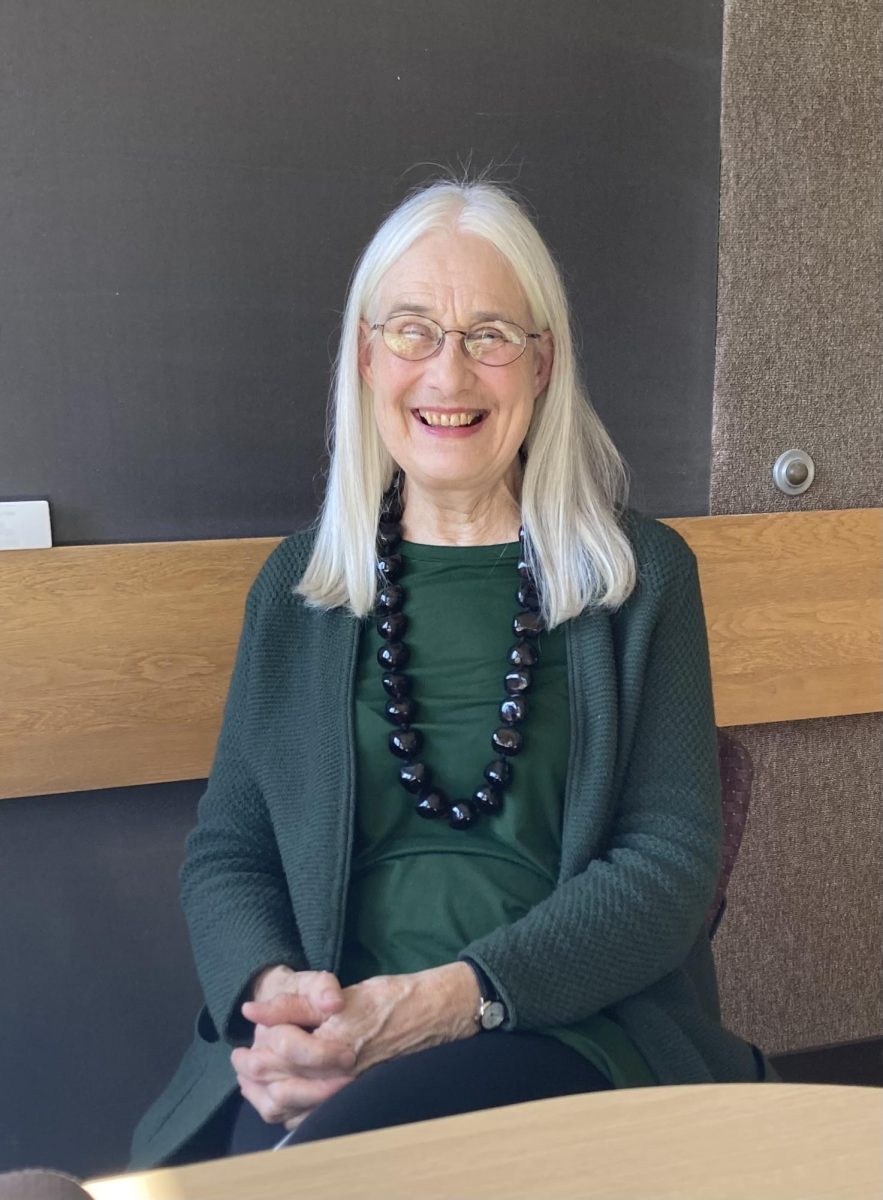Donald Trump has been elected as the next president of the United States, and Republicans have won control of the U.S. Senate. In Ohio, which went to Trump with 55.2 percent of the vote, Republicans swept the polls. Bernie Moreno beat Sherrod Brown for U.S. Senate, and Republicans won all three Ohio Supreme Court seats. Additionally, Ohio’s Issue 1, a ballot measure intending to end gerrymandering by replacing politicians with a citizens redistricting commission, failed to pass.
For many at Oberlin, these results have come as a shock. While many predictions have been ventured over how the election will impact the country and international order, it is so far unclear what this election might mean for Oberlin itself, which stands as a blue bubble in a state and county that have gone red.
“We’ve worked with elected officials from both parties at the local, state, and national level and we will continue to do that,” President Carmen Twillie Ambar wrote in an email to the Review. “It’s too early to speculate on policies that have yet to be implemented. But, no matter the political landscape, we will continue to create the type of environment where our students are prepared to meet the world as it is, and then to do the positive work necessary to change it.”
Professor of Cinema and Media and English and Faculty Advisor for the Journalism Integrative Concentration Geoff Pingree expressed a more skeptical take on the impact of the election on Oberlin.
“In a worst-case scenario, I think this election could occasion real change at Oberlin College, which stands precisely for the values — tolerance, inclusion, diversity, free expression — that have come under direct attack by the political right and that drove the campaign that has brought them to power,” Pingree wrote in an email to the Review. “As with many institutions of higher education, what we do at Oberlin makes us easy targets for the right’s deepest resentments. The fact that Oberlin is a private rather than public institution might slow or complicate an attempt by the state legislature and courts to dismantle or reshape higher education in Ohio, but I don’t know that it will stop them.”
Similarly, in an email to the Review, Professor of Politics Steve Crowley warned that Trump, vice-president elect J.D. Vance, and other Republicans have threatened to strip colleges and universities of their accreditation over civil rights violations, which could lead to potential loss of federal financial aid, an action that many see as a way to punish institutions that disagree with them.
“These are likely idle threats, since the federal government does not control the system of university accreditation,” Crowley wrote. “That said, over 60 colleges and universities are still under federal investigation over campus protests stemming from the war in the Middle East. That in itself is shocking, and the threat is real that the Trump administration and a Republican Congress will weaponize federal policy to limit free speech and attempt to impose ideological conformity.”
Assistant Professor of Politics and Comparative American Studies Jenny Garcia expressed concern for the possibility of national policies impacting members of the Oberlin community who belong to vulnerable populations, such as women, immigrants, undocumented students, and transgender students.
“That’s the kind of thing that I think could certainly impact a place like Oberlin,” Garcia said. “All of those policies don’t just stop once you get to Oberlin College. They start impacting all of us.”
This concern has been echoed by many students at Oberlin.
“The results were disheartening,” Conservatory fourth-year Damian Goggans said. “It’s hard to accept the current state of where our country finds itself. The disdain for humanity is apparent within our culture.”
Second-year Tommy Berlack expressed similar concerns.
“I want to believe that our constitution and democracy will provide adequate safe guards to what this new administration may attempt to do, but I don’t really know what to think anymore,” Berlack said.
Lili Sandler, founder of Lorain County Rising, expressed disappointment over the outcome of Tuesday’s election, but emphasized the strength of community in Oberlin and the importance of continuing to advocate.
“We still live in a democracy, and we will continue to hold our elected officials — bought or otherwise — accountable for every vote, every bill, every speech on or off the floor,” Sandler wrote in an email to the Review. “In Oberlin, we will continue to support, care for, and if necessary protect our LGBTQ+ neighbors, our undocumented neighbors, and our neighbors of color.”
College third-year Maddie Epstein also expressed a resolve to act following the results.
“I keep hearing all these messages that I agree with, that we have to move forward and lean into our communities and take our loss into action,” Epstein said. “I’m ready to see what comes next for the Democrats and I’m ready to get engaged. But I am nothing short of terrified about what another Trump administration and a Republican-held Congress will do.”
Faculty Panel Discusses Election Implications
The night after the election, over 100 students filed into the Nancy Dye Lecture Hall to listen to faculty experts discuss the election results and their implications. The panelists included Robert S. Danforth Professor of Politics Eve Sandberg, Garcia, Assistant Professor of Politics Ali Masood, Robert S. Danforth and Ben W. Lewis Professor of Economics and Co-Chair of Business John Duca, and Associate Professor of Financial Economics Udara Peiris.
Professor Garcia pointed to the Time for a Change model, which argues that the winner of an election can be predicted based on the state of the economy, the public approval rating of the sitting president, and how long the incumbent president’s party has been in power, as a potential explanation for Trump’s victory. She also acknowledged the role that Harris’ identity as a Black woman played in her loss.
In terms of what to expect from Trump for our democracy, Garcia pointed out that a lot of the traditional checks on a president will be gone, and that he will thus hold more power over the government than he did in 2016. But she also emphasized that despite concerns that may arise from the fact that Trump’s own former chief of staff called him a fascist, democracies do not die overnight.
Sandberg discussed the potential impacts of a Trump presidency on foreign relations, including Trump’s “America First” pledge, which could lead to the withdrawal of the U.S. from international organizations, a shift in the decision-making process in foreign policy in favor of a more transactional relationship with other nations, a rise in military spending, a more friendly stance towards Russia, and stronger support for Israel’s war in Gaza. Sandberg also emphasized the detrimental impact a second Trump presidency will have on national and global efforts to mitigate climate change.
Peiris outlined the financial and economic implications of a Trump presidency. Peiris explained that he categorizes Trump’s thinking as “front load growth,” in which the government endorses policies such as tax breaks for corporations, which may stimulate the economy in the short term, but come at the expense of future growth and economic stability. Peiris also pointed to Trump’s stated intentions to exit the World Bank and International Monetary Fund — moves that could have consequences for emerging markets as well as change the role of the U.S. dollar internationally.
Duca discussed how the impact of Trump’s proposed interest rates is not yet clear. He also spoke about how Chairman of the Federal Reserve Jerome Powell’s term will end next year, allowing Trump to pick his successor. This would possibly change U.S. interest rates, affecting homeownership rates, loans, and inflation. He mentioned that the economy might become overstimulated, and many regulations might come to an end in the new administration.
Masood discussed the impact of the election on the American Judiciary, including both judicial appointments and ongoing cases. He mentioned that the federal cases against Trump are being wound down and that it might be possible for Trump to grant himself a pardon, although he noted that a pardon would not affect state trials. He spoke about how conservative Justices Clarence Thomas and Samuel Alito, who are both in their 70s, might retire now that a like-minded president will occupy Congress and have a conservative Senate. Chief Justice John Roberts also might face calls to step down. Masood said that Trump’s appointees for Attorney General and Deputy Attorney General will also be enormously consequential, as they would direct any prosecutions against Trump’s political rivals, should the president-elect carry out this stated agenda. Finally, he noted that judges who have helped Trump through his election cases, like Aileen Cannon, might be nominated to a higher court, such as a Circuit Court of Appeals or even the Supreme Court.
Looking forward, Garcia discouraged despair around the results of the election. Like many members of the Oberlin community following the election, she expressed a sense of uncertainty about what to expect going forward.
“I know people say that this might have been the last election,” Garcia said. “I don’t really think it’s going to be the last election. But electing someone with these types of attitudes has consequences, it certainly does, and I guess there is a little bit of concern there. How much to give credence to that, I don’t know.”












